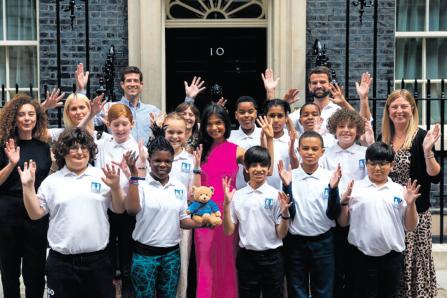
1 minute read
Your hand
A NEW work by American author Rachel Zemach who lost her hearing aged 10 suggests that many people dislike the word ‘Deaf’ and want to see it replaced.
She argued as she launched her new book The Butterfly Cage that there should be a transition from the word ‘Deaf’ as it originally derived from the words ‘” empty,” and “barren” in Old English.
countries have embraced euthanasia, including Colombia, the Netherlands, Belgium, Luxembourg, and Canada. New Zealand voted by public referendum to approve euthanasia. Starting November 6, 2023, individuals above 18 years old can seek euthanasia with two doctors' endorsement.
In a world where medical possibilities collide with ethical uncertainties, striking a balance between personal autonomy, medical ethics, and safeguarding vulnerable populations remains an intricate challenge.
In addition, when using the word in machines with autocorrect it is often changed to “death” which obviously has negative overtones. When you ask someone what deaf means they will say “someone who can’t hear.” It’s all about what they can’t do. Even the sign means “can’t hear, and can’t speak,” according to Deaf educator and author Rachel Zemach.
Her preferred alternative then is ‘Sumain’ a French word meaning Your Hand.
The sign for it looks like a flower bud, twisting at the chest and bursting open. It represents the following concepts, all of which are treasure values in the Deaf community: collective, visual, spatial, global, tactile, light.
“If you were Deaf, wouldn’t you prefer that to being called empty and barren” she asks. As times change so do words and it is possible that there is a need to change the definition, although equally this could simply be either another ‘woke’ concept from America. For those who want to learn more, the marketing for the new book explains “She shares captivating firsthand accounts from her life as a Deaf person and explores the differences in thinking between two major, and often conflicting, viewpoints on how to educate Deaf children, and how she saw the two different approaches impacting students.”
For many with all of their senses intact it is very difficult to understand how anyone, who exists without one, manages to cope, but those who are blind or deaf in particular appear to be able to react remarkably and live their best lives.










